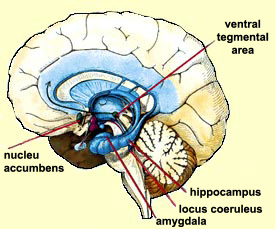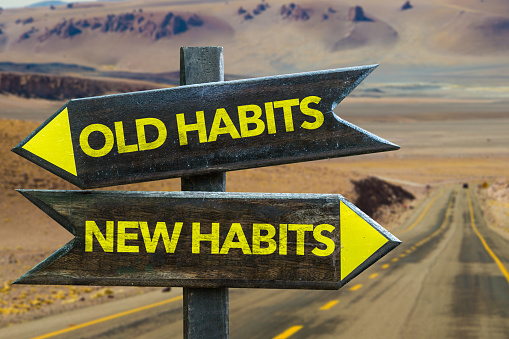
Are you an addict? I know, the term “addiction” is quickly associated with a sour taste in our mouths, but it is quite more diverse than with substances as many may have initially imagined. How many times do you check your phone per day? Ok, too many to keep track. How about per hour? Still too many? Ok what about every 10 minutes? Do you hear little voices in your head telling you just 5 more minutes on Instagram or how you just need another new pair of shoes or how you get so antsy about not having been to the gym yet today that your throat starts to tighten, sweat runs down your forehead and your mind seems unable to concentrate on anything until you’ve finished your daily workout? Addiction comes in many forms, and so I ask the question again, are you an addict?
Behavioral Addiction
Just like in substance addiction, behavioral addiction can be summed up by having or feeling any compulsive/repetitive involvement in an act that results in a rewarding experience. Interestingly, the individual will still seek this reward even if they are aware of the consequences to follow. Some examples of behavioral addiction include gambling, shopping, exercising, and pretty much anything technology-wise. With all of the spotlight on substance addiction, just how similar are behavioral addictions?
Similarities via Symptoms
Imagine this, someone is trying a drug for the first time and it makes them feel incredible, so they continue use in order to get that same pleasant feeling, until day after day, it starts to become less enjoyable and feeling more like a chore. This is the result of a shift in a positive reinforcement to a negative reinforcement, which can also be seen with a behavioral addiction, and can be explored more here. Have you ever downloaded a new app that was at first fun to play but then over time you found yourself only logging on to collect the “daily reward”, or how beginning your journey at the gym to relieve stress turned into going due to fear of returning to what you looked like from a time before. Just like substance addiction, behavioral addicts can suffer from
- Strong sense of craving
- Loss of control over their behavior
- Tolerance build-up
- Difficulty during withdrawal period and preventative relapse
Two similar forms of treatment for both cases of addiction include psychosocial and pharmacological, although since many behavioral addictions cannot be diagnosed the same as substance addictions are (except gambling), current issues include getting people properly diagnosed and treated.
Similarities via Neurochemistry
Would you believe me if I told you that your brain can change how it is “wired”? Well, it actually can, and this is referred to as neural plasticity. Individuals who are  addicted have more than likely developed changes in their neural circuits that can give rise to new meanings and reward perceptions to drugs/shopping/technology/etc. Studies have actually shown that there is an increase in the dopamine “dump off” at the nucleus accumbens (NAc), which gives a more pleasurable feeling to the individual and is heavily involved in the reward system. These changes can alter the function and shape of neurons in the brain, which currently, seems like in an irreversible way.
addicted have more than likely developed changes in their neural circuits that can give rise to new meanings and reward perceptions to drugs/shopping/technology/etc. Studies have actually shown that there is an increase in the dopamine “dump off” at the nucleus accumbens (NAc), which gives a more pleasurable feeling to the individual and is heavily involved in the reward system. These changes can alter the function and shape of neurons in the brain, which currently, seems like in an irreversible way.
Are you still there? How many times have you checked your phone since reading this blog? Ok, just checking…
An interesting study was performed with rats, where there were two groups. They were all provided with drugs in a cage and had the ability to self-administer them, except one group additionally had an exercise wheel they could run around in. What researchers noticed was that the rats who had used the wheel in their cage showed increased levels of dynorphin, delta FosB, and increased levels of dopamine at the NAc– all of which are seen in addiction! These rats also did not end up self-administering drugs after their run either. Is exercising a way to help with addiction? Did the wheel act as an environmental variable instead of an exercising factor? As you can see, there are still many questions left unanswered, but maybe researchers are on to something.
A Future Full of…
 With the rise of technology, what is our world going to look like in 5,10, 20 years from now? What are we going to do to prevent this? Is anything actually needed to be prevented? It only seems like a matter of time before there are ways for diagnosing not only substance addictions but behavioral addictions too. Until then, we might just have to continue on with our days, checking our phones once they “ding” with a notification, briefly pausing, thinking, “Wait, do I have an addiction?”.
With the rise of technology, what is our world going to look like in 5,10, 20 years from now? What are we going to do to prevent this? Is anything actually needed to be prevented? It only seems like a matter of time before there are ways for diagnosing not only substance addictions but behavioral addictions too. Until then, we might just have to continue on with our days, checking our phones once they “ding” with a notification, briefly pausing, thinking, “Wait, do I have an addiction?”.